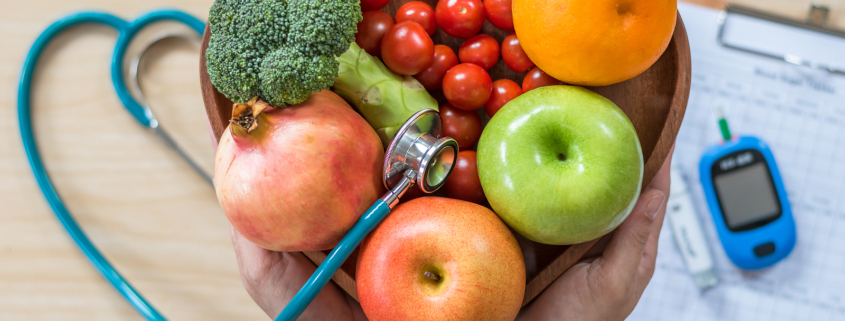Why Does Nutrition Matter During Radiotherapy Treatment?
Alongside exercise and mental health, nutrition is a key component of a healthy lifestyle, and during a course of radiotherapy treatment, diet will be a key consideration of the multidisciplinary team.
Nutrition is key to ensuring that the body is as ready for treatment as possible during prehabilitation, that discomfort is minimised during treatment and to ensure a speedy recovery afterwards.
Part of your multidisciplinary team will include a dietitian, a health professional who not only provides dietary advice but can also assist with personalised solutions to complex nutritional issues.
Here is why nutrition matters during radiotherapy treatment.
The Body Needs Energy For Recovery
The connection between mental health, physical activity and nutrition is energy, and having sufficient energy levels is an important part of boosting recovery, maintaining high spirits and enhancing resilience to treatment.
Radiotherapy, like all treatments, requires a recovery period, even if many people can walk into the clinic, walk out and continue with their day.
A balanced diet filled with nutrients and sources of slow-release energy can help reduce or potentially avoid the sensation of crashing, extreme fatigue and Somnolence Syndrome, by providing the body with energy.
This tiredness can be caused by a range of factors, but the main reason is an inherent part of the recovery process of the body. People feel tired when recovering from illness or injury because their bodies are using energy as part of the healing process.
Radiotherapy Is Based On Weight And Size
A radiotherapy plan arranged by the multidisciplinary team takes into account a person’s height, weight and overall health, and since weight loss can sometimes occur as a result of radiotherapy treatment, maintaining nutrition is essential to ensure that the course of treatment remains effective.
If this is a factor, a dietitian will often recommend a diet high in energy and protein, including eggs, fish, meat, cheese, beans and full-fat milk, in forms that are easy to digest such as soups or milkshakes as required.
Food Is Important For Mental Health
One of the most important relationships people have is with themselves, and one way in which this manifests is in their relationship to food.
Food and drink are not just a matter of nutrition but also pleasure and appetite, and the taste changes, dry mouth and swallowing difficulties that can sometimes result from treatment can affect a person’s relationship with food.
A dietitian can help through offering variety and reducing the difficulties of maintaining energy and nutritional levels through small meals, softer diets and avoiding foods that can have complex and uncomfortable sensations such as spicy foods.
They can also offer support if foods are difficult to chew or swallow, such as by offering supplement drinks, soft foods or liquid meals as and when they are required.
Maintaining energy levels through nutrition is essential for maintaining mental health, and a dietitian’s role is likely to evolve depending on the treatment plan and multifaceted needs of the individual to ensure that a meal plan.
Maintaining The Social Aspect Of Food
Another aspect of nutrition as it pertains to mental health is the social aspect of eating, drinking and enjoying meals. A dietitian will often work with a psychologist to assist in managing the complex emotional and social elements of food.
They will often encourage people to start small and gradually build up their confidence. Starting with eating at home with friends can extend to a trip out for an easy-to-eat dessert such as ice cream.
Most people and most dining establishments are more than happy to adapt meals and make changes in response to dietary needs. Some restaurants are upfront with what they offer whilst others will discuss an individual’s requirements via email or over the phone.
Regular Discussions With A Dietitian
Most people who will receive head and neck radiotherapy will be offered the services of a dedicated specialist dietitian as part of their treatment plan, and if this is offered there will be regular meetings, discussions or calls to ensure that a person’s needs are met.
These discussions could be as simple as having an opportunity to ask questions or discuss certain sensations such as taste changes or swallowing pain, but can also include advice on which foods and drinks to eat, which to avoid, and what specialist help is available.
As with other parts of an MDT, these meetings are important to the outcomes of radiotherapy treatment as part of a comprehensive, holistic treatment plan that is in effect before, during and following the conclusion of radiotherapy treatments.


